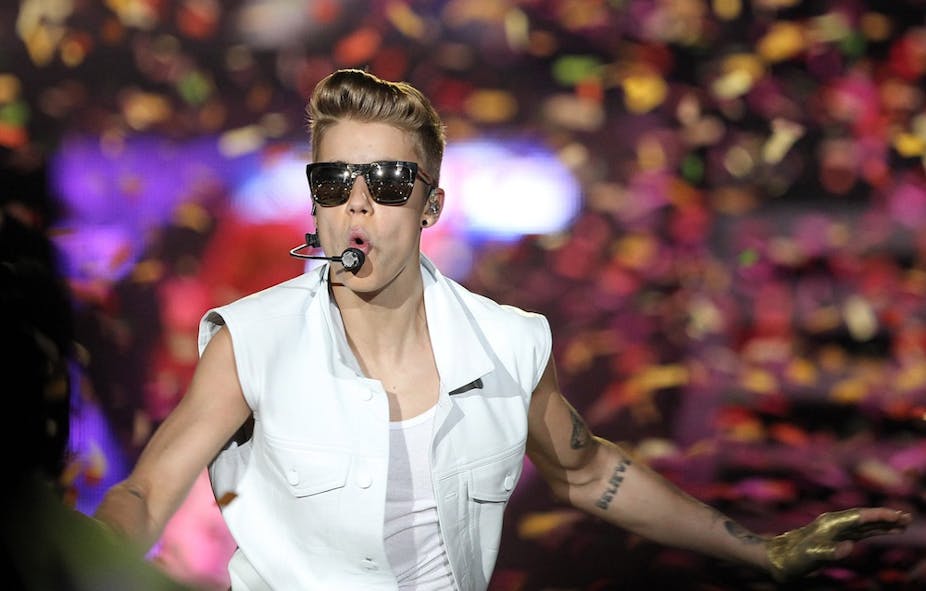How many Twitter followers do you have? As a rule of thumb, the worth of a conventional blog can be measured by the number of comments it accrues per posting. If comments are the social capital of blogs then in the world of micro-blogging, namely Twitter, the equivalent is number of followers.
Zero followers means that you are essentially talking to yourself in social media. The danger with a fetish for followers, though, is that genuine online identity can disappear and be replaced by a numeric value.
Pop music sensation Justin Bieber is currently numero uno in this respect with over 38 million Twitter followers and counting. A huge number - but are they all real? And what does this mean for our trust in Twitter “brands” such as his?
The nascent phenomenon of fake Twitter followers has spawned what is fast becoming a lucrative cottage industry, valued by some to be a business proposition worth as much as $US360 million.
Recently it was reported that the Twitter accounts of Julia Gillard, Tony Abbott, Kevin Rudd and other high-profile Australian politicians were infiltrated by spam bots whose function was to artificially increase their number of followers.
No doubt this is unethical behaviour as well as being a violation of terms of services and for this reason exact figures as to the spread of the epidemic are anecdotal to say the least.
Automated software tools have been developed by entrepreneurs exploiting this opportunity for a sting, as well as dragooning human crowdsourcing squadrons with the promise of a fee-for-service to create spoof Twitter followings, possibly as a strategic audience for targeted accounts.
The latter strategy is reminiscent of the “50 cent Party” movement in China, whereby the Communist Party recruited citizens to misrepresent or redirect public opinions expressed on internet bulletin boards and forums so as to align chatter therein along government lines.

This army of online commentators was apparently paid the aforementioned pittance specified per desired posting.
Why does this sort of artificial inflation matter anyway? It’s because if economics is about the distribution of resources, then the most valuable property in an information economy such as ours, is attention. In a digital landscape riddled with distractions, the “look at me!” principle reigns supreme, dictating the style and substance of content.
The effect of fake followers could be that the popularity of politicians may be inflated adding to their power base as a result of the halo effect, whereby character judgements are influenced by overall impressions. Becoming more popular because you are already popular would also be a case of accumulated advantage through the Matthew effect, a term first coined by American sociologist Robert K. Merton to describe how an eminent scientist would receive more credit for their ideas than an unknown researcher.
This (sometimes literal) concept of “the rich get richer and the poor get poorer” can also apply to something as mundane as Twitter followings. So any sign of fakery would possibly be unfair. In the garden of Twitter, followings should grow naturally and not be supplanted by the digital equivalent of AstroTurf.
If the metric of micro-celebrity is a large following, then inflating that following with fakes can give the notion of authenticity a hammering. Is it now merely manufactured to order? Or can it still retain the patina of a virtue?
On a personal level, virtue ethics teaches that for every virtue there exists a vice - and this symmetric understanding can be honed through a learning process. Not caring about that which is phony could lead to a disregard for the genuine which would damage the notion of originality as a good thing to aspire to, especially in this cut-and-paste age of online behaviour. From an ethical perspective, originality as a virtue should be its own character-building reward. But in order to achieve this it must be practised in someone’s daily life - not someone’s fake daily life.
Perhaps authenticity should be reimagined as an “eVirtue”, one that is allied to sincerity, trustworthiness, honesty, truthfulness and fair-dealing, but with a unique salience in the 21st century. If the founder of virtue ethics, Aristotle was a Twitter aficionado, he would most likely recoil in disgust at the growing emergence of a counterfeit culture.

